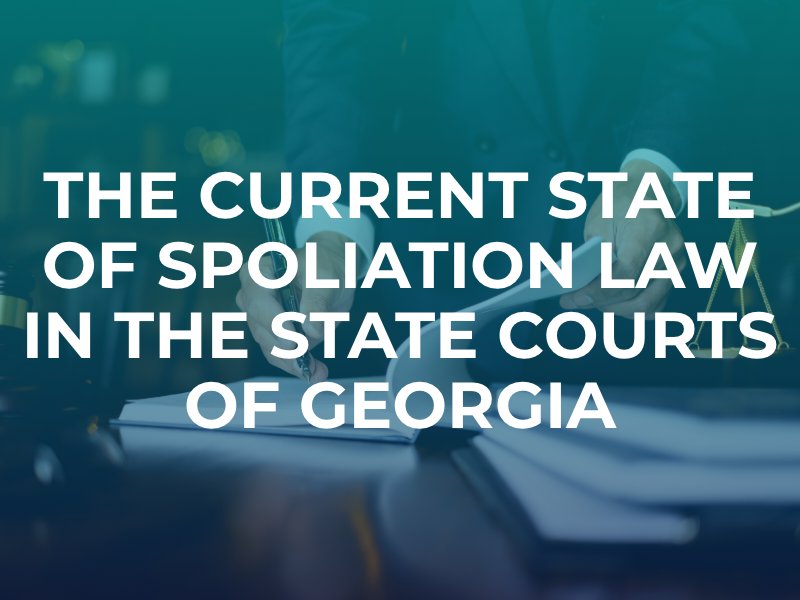The Current State Of Spoliation Law In The State Courts Of Georgia
Most people understand that evidence is the key part of any court case. This is true for both criminal matters as well as civil court issues. However, there are times when evidence is altered, destroyed, or disappears before the completion of pending litigation. This is referred to as the “spoliation” of evidence. It is important to understand what spoliation of evidence means, particularly if you are involved in any pending litigation.

Defining spoliation of evidence
Under Georgia law, spoliation of evidence specifically refers to “the destruction or failure to preserve evidence that is necessary to contemplated or pending litigation” (Phillips v. Harmon, 297 Ga. 386, 393 (2015).
Spoliation of evidence and the sanctions that can result from spoliation are a significant concern in various types of civil cases. While many people think of spoliation as an extreme act taken by one party involved in a case, the reality is that even seemingly innocent conduct can result in spoliation. Yes, there may be times when a defendant purposely destroys a document that they know will result in them being held liable and a lawsuit. However, it is just as likely that a person accidentally shreds a document as part of a routine cleaning. This could lead to a spoliation sanction. The first example would be a bad faith destruction. The second example may be good faith destruction or even negligence, but will not likely be evidence of bad faith destruction of evidence.
Under the aforementioned case (which was a Georgia Supreme Court decision), there are various duties involved in evidence preservation for all litigants. Prior to that court decision, the defendant had a duty to preserve evidence only after they have received actual notice of pending injury claims from a claimant or their attorney. Due to the Phillips decision, the Georgia Supreme Court determined that a defendant has a duty to preserve evidence when they have actual or constructive notice pending litigation.
The Court did list a series of circumstances that would effectively put notice that the plaintiff is contemplating litigation. This includes the following circumstances:
- The type and extent of injury involved
- The extent to which fault for the incident is clear
- The potential financial exposure the defendant could be liable for
- The relationship and course of conduct between the parties involved (Including past litigation)
- The frequency with which litigation occurs under similar circumstances
Georgia trial courts are required to weigh the following five factors before issuing any sanctions regarding the spoliation of evidence:
- Whether the party seeking spoliation sanctions was prejudiced as a result of the destruction of evidence
- Whether the prejudice could be cured
- The practical importance of the evidence in question
- Whether the party who destroyed the evidence was acting in good faith or bad faith
- The potential for abuse if expert testimony pertaining to the evidence was not excluded
Can spoliation lead to punitive damages against a defendant?
Thus far, Georgia courts have rejected the argument that spoliation is a basis for punitive damages being awarded in a personal injury case. The courts have said that the spoliation of evidence cannot, by itself, be the basis for an award of punitive damages.